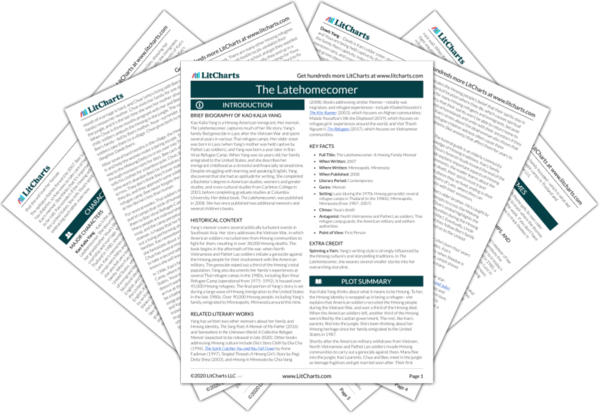Even though the family has made it to a refugee camp, the conditions are still poor: people have to sleep in the dirt and are constantly hungry. In this way, the Hmong people are constantly victimized and treated inhumanely, whether they’re prisoners of war or refugees. Uncle Chue’s return reminds the reader that the Hmong people were forced to flee violent abuses in Laos, which prompts readers to question why the refugees are treated so poorly—after all, it’s clear that stateless people have no choice but to seek refuge.


